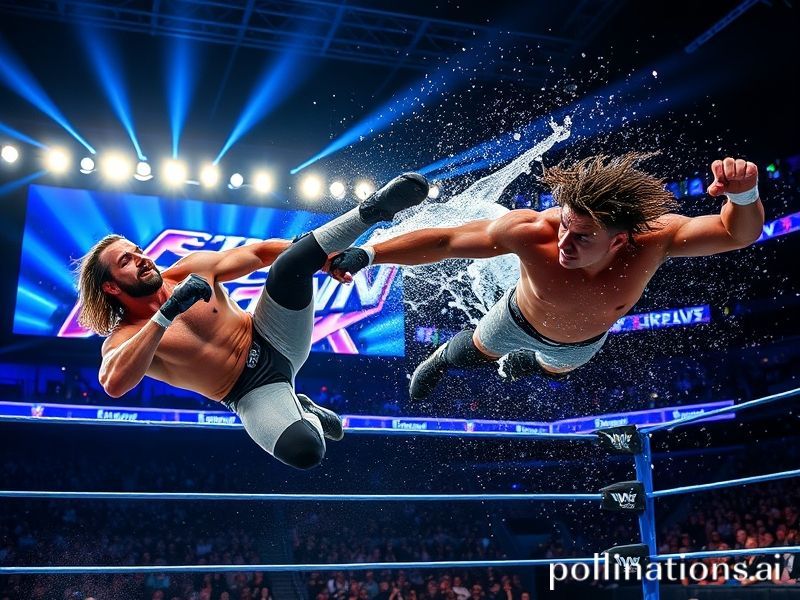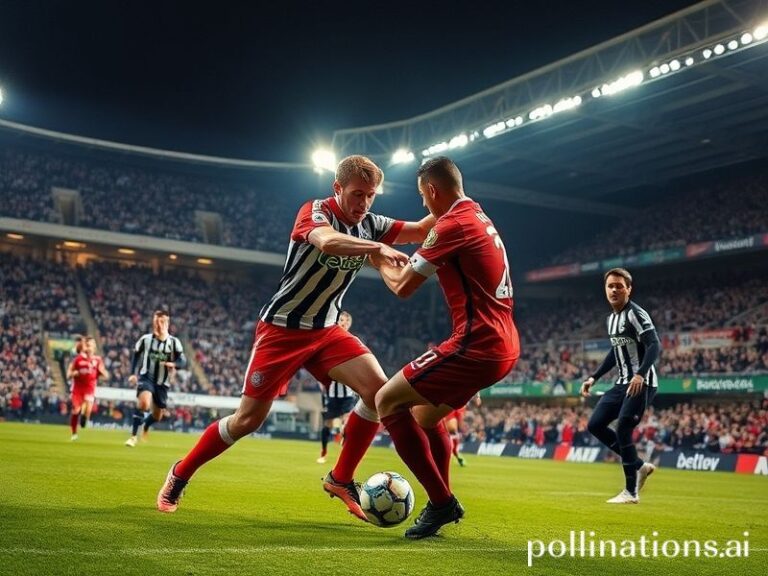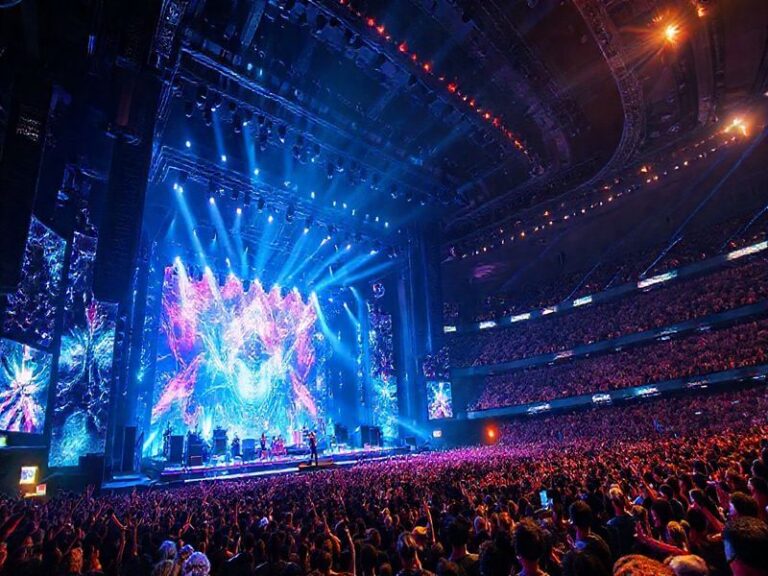Global Body Slam: How WWE SmackDown Became the World’s Most Honest Diplomacy
**SmackDown Diplomacy: How WWE’s Traveling Circus Became the Last Universal Language**
GENEVA—While the UN Security Council spent Friday night bickering over whose turn it is to veto humanitarian aid, 1.3 million people from Lagos to Lahore tuned into WWE SmackDown to watch a man in neon spandex pretend-break another man’s spine over a folding chair. Same time slot, arguably higher ethical standards.
The blue brand’s weekly two-hour broadcast now beams to 180 countries in 28 languages, making it the most widely syndicated piece of American storytelling this side of climate denial. From Saudi Arabia’s sovereign-wealth-funded Premium Live Events to a makeshift ring erected in a Shanghai cargo hangar where local censors edit out the blood but leave the capitalism, SmackDown has become the glittering, thigh-slapping embodiment of soft power—if your definition of “soft” includes steel steps to the face.
Viewership data tell the tale: India alone accounts for 18 % of global SmackDown traffic, a statistic that delights WWE’s investors and terrifies its chiropractors. In Mexico City, bars stay open past 2 a.m. to screen the show live; patrons who can’t afford imported beer still tip generously when Rey Mysterio’s mask flies off, because nothing transcends class like communal voyeurism. Even in war-scarred Kyiv, a pop-up “Suplex Cinema” runs on a diesel generator every Friday, proving that while Russian missiles may knock out the power grid, they cannot stop Roman Reigns from telling you to “acknowledge him”—subtitled, of course, in Cyrillic.
The international expansion is no accident. WWE’s parent company, newly public and eternally thirsty, now books “international pods”—self-contained story arcs designed to hit regional emotional pressure points. Hence last month’s tag-title match in Cardiff that shoe-horned a Welsh miner’s grandson against a Cockney caricature who insulted leeks. The crowd wept, bought foam leeks, and forgot for three hours that their heating bills had tripled. Call it escapism, call it propaganda, just don’t call it late for the merchandise table.
Critics—those fun-spoiling vampires who insist on counting bodies instead of ticket sales—point to the roster’s revolving-door healthcare plan and the convenient amnesia regarding concussions. True, WWE’s wellness policy reads like it was ghost-written by an opioid, but let’s maintain perspective: compared to Qatar’s stadium architecture, SmackDown’s body count is practically quaint. Besides, when your alternative is another season of *The Bachelor: Riyadh*, suddenly choreographed suffocation feels refreshingly honest.
The geopolitical subplot grows richer every quarter. Saudi Arabia pays a reported US $50 million per stadium show—roughly the annual budget of three UN refugee programs—so that Crown Prince Mohammed bin Salman can tweet selfies with The Undertaker. Meanwhile, Washington keeps wrestling on the State Department’s “cultural exchange” ledger, a bureaucratic sleight-of-hand that allows USAID to claim credit for “empowering women” every time Sasha Banks main-events. Everyone wins: the Kingdom whitewashes its image, America exports a sanitized mythology, and the talent collects a jet-lag bonus large enough to bribe their own spines back into alignment.
And yet, strip away the pyro and the pandering, and what remains is a ritual older than the treaties gathering dust upstairs in the UN gift shop. Two tribes, one ring, a predetermined outcome sold as honest combat. The audience suspends disbelief because the alternative—accepting that real power operates with the same scripted cruelty, minus the refund policy—is too depressing even for Europeans. In that sense, SmackDown is the most truthful diplomacy we have: the violence is fake, the money is real, and the winners are decided long before you chant “This is awesome.”
So the next time some think-tank drafts a white paper on “rebuilding global trust,” suggest they license a 24-hour network of suplexes and soap opera. Cheap, effective, and best of all, nobody pretends the injuries are accidental. In a world busy gaslighting itself into oblivion, there’s something almost noble about a cage match that admits the cage was always the point.







